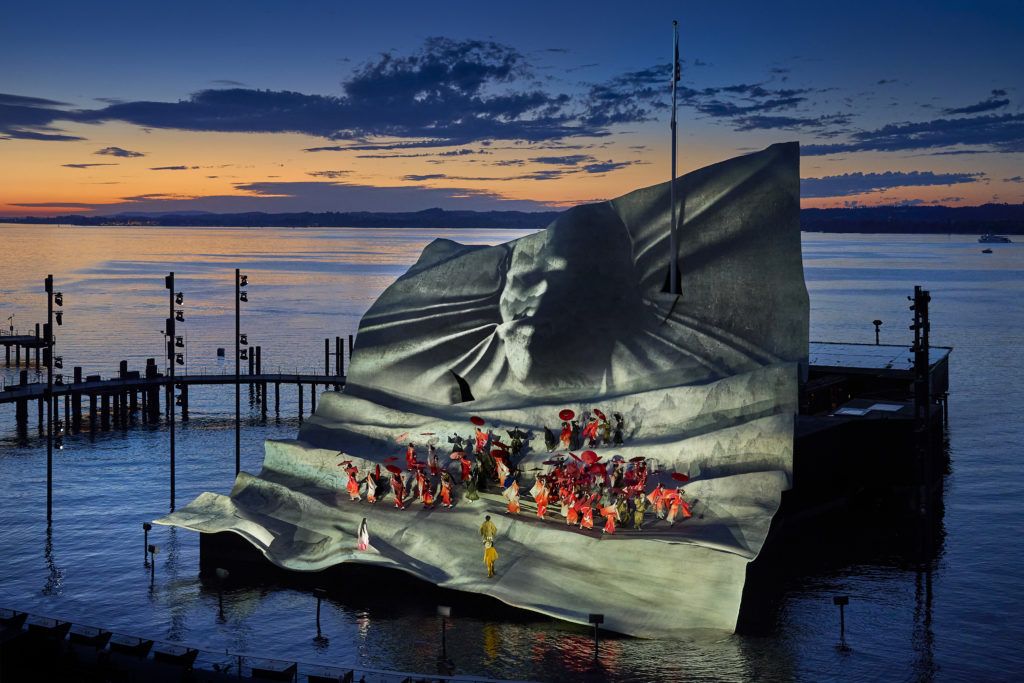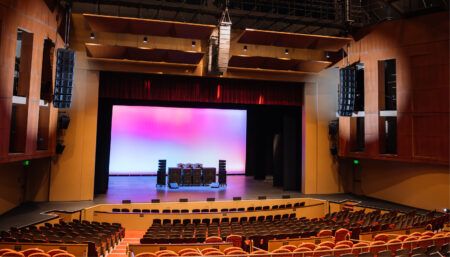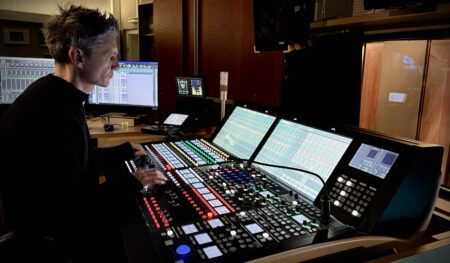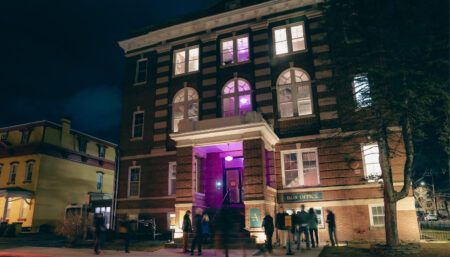The Bregenz Festival (Bregenzer Festspiele) has been an icon on the European cultural landscape for more than 75 years. Hosting a wide range of musical and theatrical events during July and August in the Austrian city of Bregenz, the jewel in the festival crown is the Seebühne in the spectacular setting of the waters of Lake Constance.
The largest floating stage in the world, the Seebühne, with its 6,658-seat open-air amphitheatre, is the star venue for the festival’s musical and operatic productions, often with sets as stunning as the backdrop. This year’s production was Puccini’s Madame Butterfly, staged on a vast 23 x 33m 300-tonne set designed to represent a giant leaf of delicately creased Japanese paper.
The technical challenges involved in a production of this nature are enormous, with sound being amongst the most critical. This year, KV2 systems made up the core of the highly complex main system serving the Seebühne and its auditorium.
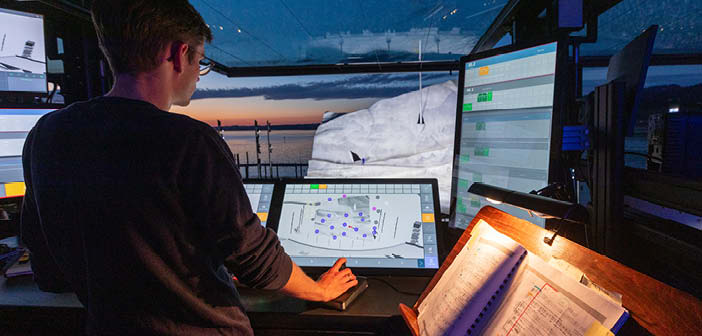
“We have been using a point-source based system for many years now as we found it was the most efficient way to handle the various constraints of working on an outdoor production with a live orchestra and a complex set,” explained Clemens Wannemacher, head of sound for the festival. “I’d had my eye on KV2 since 2019 when I was working on another lake stage in Mörbisch am See and was looking to upgrade the front fills and main PA. Martin Lukesch, head of sound at the Volksoper Opera in Vienna mentioned that I should listen to KV2, so we organised a shoot-out amongst several brands. That’s when I heard KV2’s ESR212 and ESR215 for the first time. As luck would have it, Alwin Bösch, who has been working with Bregenz for over 28 years and is now my deputy head of sound, was also at the shootout. We were both impressed by what we heard that day.”
“When I started with Bregenz in 2020 and was looking into upgrading our loudspeaker setup, both Alwin and I immediately settled on the ESR212,” Wannemacher continued. “We loved the sound, even more than the ESR215, and we also loved the fact that you can rotate the horn in the 212. That comes in very handy as we have to hide the speakers in the set, and by rotating the horn we can use it horizontally which makes it very versatile.”
The loudspeaker setup is highly complex with more than 40 loudspeakers from four different brands being hidden in the stage alone including VHD1.21 and VHD2.16 subs from KV2 and three horizontally orientated ESR212s. They join a mix of other loudspeakers from Kling & Freitag, Adamson and JBL. “The stage has ‘holes’ with small platforms behind them that house the loudspeakers,” said Wannemacher. “The holes are covered with a metal grid, that is (partially) covered with plaster and then painted. There are no dedicated monitor-loudspeakers for the singers. They are effectively standing in front of the PA, so they pretty much hear what the audience hears.”
As for the rest of the PA system, it is equally complex, with loudspeakers mounted on a series of poles surrounding the listening zone. Four large poles next to the set (two per side) house four levels of loudspeakers including two KV2 ESR212s in the middle – which are supplemented by Kling & Freitag Spectra 212s top and bottom. Smaller poles surround the rest of the listening area equipped with three levels of K&F Spectra 212 and CA1001CX (along each side) and two levels of Adamson P12 (across the rear). There are also several K&F Linus loudspeakers placed beneath the seats in the middle of the audience zone as well as some JBL subs.
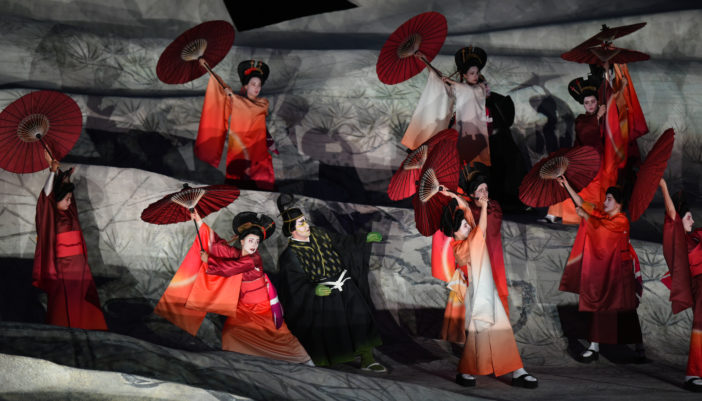
“There are a few reasons why we ended up with this loudspeaker mosaic,” said Wannemacher. “Firstly, we try to use speakers that are fit for the different tasks we require. For example, the KV2ESR212s on the poles and inside the set are primarily used for amplification of the orchestra. Here we need a powerful system with broad coverage, so we can reach a large audience area from the L/C/R positions. However, for the voices, we prefer loudspeakers with much narrower coverage to target specific areas of the audience where we can control the delay.”
To add a little more spice to the mix, since 2006, the orchestra has been housed in the nearby Festspiel hall rather than on an outdoor stage. This adds a further layer of complexity but gives Wannemacher and his team much more scope when it comes to creating an immersive experience for the audience.
“We’ve implemented a 3D sound system using different speakers at different heights, including under-seat speakers for middle stalls,” said Wannemacher. “I wanted to mirror this to capture room sound, so we set up microphones in a three-level arrangement to feed the three levels of loudspeakers. When combined with our 3D electronic acoustic room system we achieve a very realistic and pleasant-sounding room that benefits the entire audience. Thanks to an intricate setup of both microphones and loudspeakers, we’ve managed to create an immersive experience for the audience, even in an outdoor environment.”


